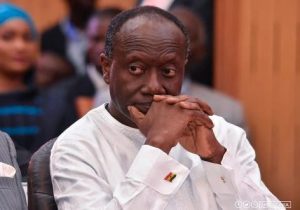 Due to the public’s outcry on pension taxation supposedly mentioned by the Finance Minister, Seth Terkper recently, a leading Ghanaian economist, Dr Raziel Obeng-Okon explains in details on the subject matter.
Due to the public’s outcry on pension taxation supposedly mentioned by the Finance Minister, Seth Terkper recently, a leading Ghanaian economist, Dr Raziel Obeng-Okon explains in details on the subject matter.
THE THREE-TIER PENSION SCHEME
The three-tier pension scheme consists of the following: (1) a mandatory basic national social security scheme; (2) a mandatory fully funded and a privately managed occupational pension scheme, and (3) a voluntary fully funded and privately managed provident fund and personal pension scheme.
The objectives of the Three-Tier pension scheme as enshrined in the National Pensions Act, 2008 Act766 are to: (1) provide pension benefits to ensure retirement income security for workers; (2) ensure that every worker receives retirement and related benefits as and when due; and (3) establish a uniform set of rules, regulations and standards for the administration and payment of retirement and related benefits for workers in the public and private sectors.
PENSION CONTRIBUTIONS
An employer of an establishment shall pay for each month in respect of each worker, an employer’s contribution of an amount equal to thirteen per centum (13.0%) of the worker’s salary during the month.
An employer of an establishment shall deduct from the salary of every worker in the establishment immediately at the end of the month, a worker’s contribution of an amount equal to five and half per centum (5.5%) of the worker’s salary for the period, irrespective of whether or not the salary is actually paid to the worker.
The above contributions sum up to eighteen and half per centum (18.5%) of the contributor’s monthly salary towards the mandatory schemes.
PENSION TAX EXEMPTIONS AND RELIEFS
Mandatory Occupational Pension Schemes
Section 89 of Act 766 indicates that Tax is not payable by an employer or employee in respect of contribution towards retirement or pension schemes. In addition, tax is not payable on the benefits to be received after retirement.
Section 104 specifically mentions that investment income including capital gains from the investment of scheme funds shall for the purposes of income tax be treated as deductible income.
An employer or employee shall not pay income tax in respect of contributions to a mandatory occupational pension scheme. The specific total tax exemptions are: (a) thirteen and half per centum (13.5%) of a contributor’s salary to the first tier mandatory basic national social security scheme; and (b) five per centum (5.0) of a contributor’s salary to the second tier mandatory occupational pension scheme.
The total tax exemptions from (a) and (b) is therefore eighteen and half per centum(18.5%) of the contributor’s monthly salary from both the employer and employee.
Voluntary Schemes
When it comes to the third tier which is the registered voluntary fully funded and privately managed provident fund and personal pension scheme, the law provides for a tax relief of contributions not exceeding sixteen and one half per centum (16.5%) of a contributor’s monthly income, made by either an employee or employer or both. This is spelt out under section 112 of the Act 766.
In summary, workers in the formal sector can therefore enjoy up to 35.0% of their monthly salaries in tax exemptions and reliefs. This is made up of: (a) 13.5% tax exemption from their Tier 1 SSNIT monthly contributions; (b) 5.0% tax exemption from their Tier 2 mandatory occupational pension scheme and (c) up to 16.5% of Tier 3 registered voluntary fully funded schemes.
To be fair to workers in the informal sector who are not covered by the mandatory Tier 1 and Tier 2 pension schemes, Act 766 provides for a maximum of 35.0%tax relief of their declared income to be treated as deductible income for the contributor for the purposes of income tax.
PENSION BENEFITS AND TAX EXEMPTIONS
Section 110 outlines the conditions for withdrawal of accrued benefits. These include the following:
For the Mandatory Schemes (Tier 1 and Tier 2),a member who has attained the retirement age is entitled to the entire accrued benefits in the mandatory schemes without any tax.
A member who has not attained the retirement age may withdraw all or part of the member’s accrued benefits still without any tax. It is important to note that this category gets the total 18.5% tax exemptions from their monthly contributions and shall not pay any additional tax on withdrawal of the pension benefits.
For the registered Voluntary Fully Funded and privately managed provident fund and personal pension scheme in the Formal Sector (Tier 3), it is only after ten (10) years from the date of first contribution before the member can withdraw all or part of the accrued benefits.
However, for those contributors of registered personal pension schemes in the Informal Sector, one can withdraw all or part after five (5) years from the date of first contribution. It is important to note that this category gets up to 16.5% tax relief on one’s monthly salary contributions.
This means that any registered Tier 3 scheme with contributions above 16.5% of salary deductions shall not receive full tax relief because it is limited to only 16.5% of salary deductions. Notwithstanding, like the mandatory schemes, the Tier 3 benefit withdrawal shall also be tax exempt so long as it meets the 10 years and 5 years duration for the formal and informal sectors respectively.
However, any withdrawal by a normal person before the 10 years and 5 years durations for the formal and informal sector operators respectively shall be subject to the appropriate income tax for contributors.
Other Tax Exempt Conditions
A withdrawal from a scheme at any time after certification by a medical board that the contributor is incapable of normal gainful employment due to a permanent physical or mental disability is tax exempt.
In addition, a withdrawal from a provident fund or personal pension scheme at any time by the beneficiaries of the estate of a deceased contributor is also tax exempt.
By Dr. Raziel Obeng-Okon, CEO, CIDAN Investments Limited





